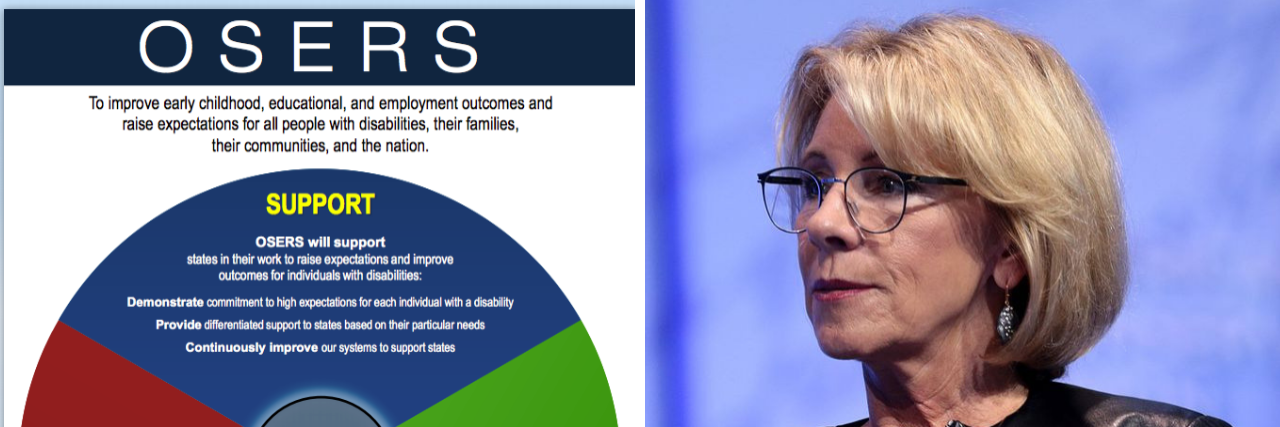Why the Trump Administration 'Rethinking' Special Education Is Concerning
Sometimes the news isn’t as straightforward as it’s made to seem. Ellen Stumbo, The Mighty’s Parenting Editor, explains what to keep in mind if you see this topic or similar stories in your newsfeed. This is The Mighty Takeaway.
I parent two children with disabilities who have Individualized Education Plans (IEP) at school; children who currently receive a Free Appropriate Public Education (FAPE). This is an educational right for all children with disabilities in the United States, guaranteed by the Rehabilitation Act of 1973 and the Individuals with Disabilities Education Act (IDEA).
On Thursday, the Office of Special Education and Rehabilitative Services (OSERS) put out a two-page framework stating it will “rethink anything and everything to ensure that we are in the best position to achieve our mission.”
Its goals include looking at what is currently limiting opportunities for individuals with disabilities and to “change policies and practices that put the needs of a system over the needs of the individual.”
While at first glance this appears to be a promising direction, the second page of the document, which outlines the three ways it plans on accomplishing its goals, is concerning. These are:
1. Supporting states.
2. Partnering with families and ‘diverse stakeholders.’
3. Giving flexibility to individual states to determine the implementation of their programs.
Johny W. Collett, the Assistant Secretary at OSERS, who was a former high school special education teacher and state special education director, wrote a post regarding the new framework. He said:
This commitment means acknowledging that states, school districts, and parents know the needs of their students better than we do. Our goal is to provide them with as much flexibility and support as possible so that they can ensure their students’ needs are being met.
This is where I see red flags. This appears to be a step in a direction many of us parents feared would happen.
Since Betsy DeVos was nominated Secretary of Education, many of us who have children receiving special education have been worried. Her ignorance regarding special education was made clear during her confirmation hearing when Sen. Tim Kaine (D-VA) asked her about IDEA — a nationwide law all schools receiving taxpayer dollars are required to follow — which she said implementing was “a matter that’s best left to the states.”
When 72 guidance documents were rescinded, we worried again.
Giving states the “flexibility” to make decisions regarding special education concerns me.
Some schools, states and districts do a wonderful job servicing kids with disabilities and some IEP teams work together wonderfully. But that is not the case for many children and their parents. I know of more parents who dread IEP meetings, who have to fight schools so that their kids receive the services and supports they need, many who have had to take legal action. There are schools that fail to meet IDEA. There are some states that follow IDEA well, and some that don’t, even though it is a federal law and special education services should be the same regardless of where you live.
We know federal laws were created in order to protect all students regardless of the state they live in. Without this uniformity, states can create different policies, procedures and laws. This could create situations where families in states with weak laws may consider moving to a different state. A migration that could cause states with strong laws to become underfunded and overcrowded, creating a new set of problems. These issues are already a reality, but at least there is a federal law on our side, regardless of where we live.
I fear this new “framework” will allow schools and states to get away with not following aspects of IDEA, leaving us with no place to turn to for answers. I want reassurance that IDEA will be safe.
As a parent, I already have to “fight” schools with IDEA on my side.
I believe there is a way to support states, and if the Department of Education truly believes this, then let’s increase the budget and invest in special education rather than making cuts. This is where we can start. Let’s make states accountable to use those resources appropriately to benefit the students.

